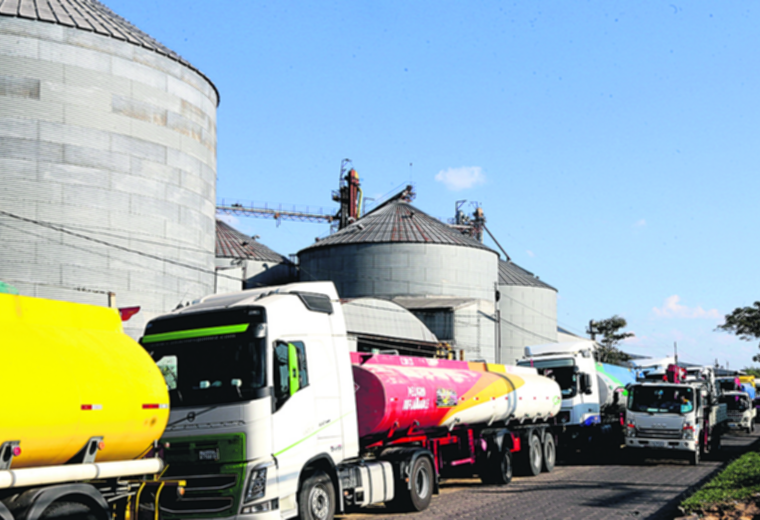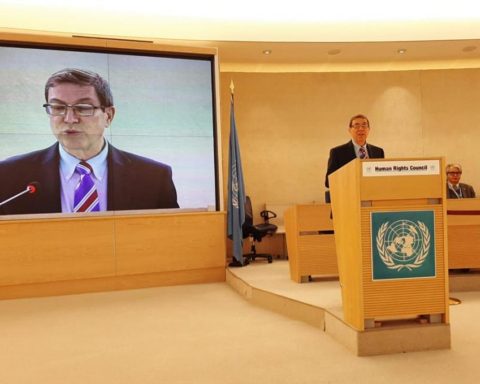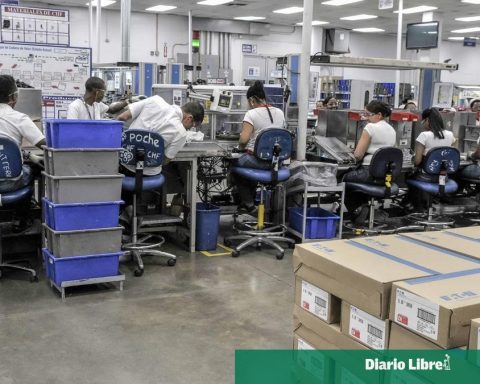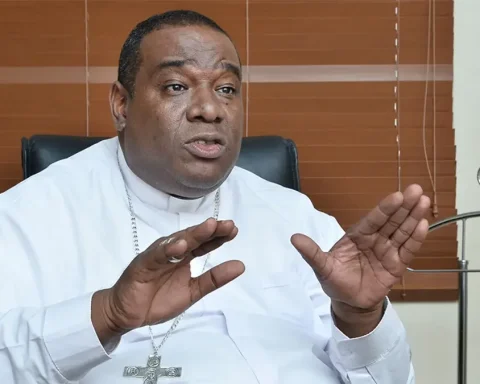May 5, 2023, 4:00 AM
May 5, 2023, 4:00 AM
While in Santa Cruz there is already despair among agricultural producers due to the obstacles to access fuel in rural areas, in Beni and Cochabamba the concern exists, but not to the same magnitude.
For Rolando Morales, representative of the Cochabamba Agricultural Chamber, the explanation is that in Santa Cruz agriculture is industrialized and when planting and harvesting occurs, machinery is used.
“We don’t have that technology. I would say we have a 5% delay in production, which is not a big deal, we continue to export bananas, pineapples and hearts of palm,” he said, but acknowledged that they are already lining up in that department. “Before, we would go for half an hour, now we have to stay for two hours, and that delays production,” he acknowledged.
What does worry Morales is that he is intensifying a black market for fuels in the Cochabamba Tropicsthat although it already existed, “more sellers have appeared at higher prices, and the producer who needs fuel for his machinery is forced to buy,” he added.
Morales requested a meeting with the authorities of the National Hydrocarbons Agency and other institutions, and recommended that they approach the pumps for direct control. He applauded the decrees that restrict the sale, but said that there is a lack of personnel in the service stations to carry out the respective control.
From the Association of Oilseed Producers of Beni (Adepo), the head Fernando Romero acknowledged that they are about to start planting soybeans and sorghum in that department, and that there is a shortage of diesel.
“We are not as bad as in Santa Cruz because here (Beni) planting is very small, we are just being born in agriculture in terms of soybeans and the rice harvest is over,” he said.
Romero added that they are 50 thousand hectares cultivated in Trinidad, while in Santa Cruz they are around a million and a half. However, he acknowledged that there is concern that the lines will swell. Romero stressed that Santa Cruz produces more than 70% of the food of Bolivia, and that is why the consumption of diesel is massive. “With this problem, food security is put at risk.”
From Anapo they indicated that the issue is delicate and they will pronounce today about.
For his part, José Luis Farah, president of the Eastern Agricultural Chamber (CAO), regretted that producers continue to have fuel shortages in some areas, and just when the sugarcane harvest begins, “something that should not happen.”
He informed that today they will have a meeting with the Ministry of Hydrocarbons, the ANH, and Controlled Substances. “They have to find a solution. Everything legal costs, and the producers do not have diesel at the right time, ”he lamented.
Farah emphasized that bureaucracy is not good for the producer. “We are men and women from the countryside, we dedicate ourselves to work. We are not processors, “he questioned, since currently the producers must” make a pilgrimage to various places: “ANH, Controlled Substances, Ministry of Hydrocarbons and YPFB.”
On Sunday, the president of YPFB, Armin Dorgathen, said that Diesel delivery was reduced from 2,600 to 2,400 cubic meters per day, but attributes the ranks to speculation. He added that they are applying ‘controlled supply’.

















